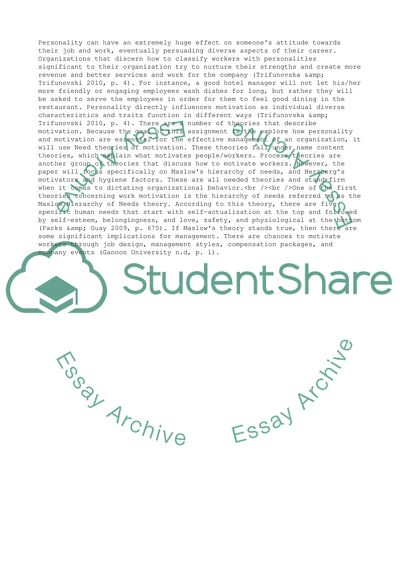Cite this document
(Personality and Motivation and Effective Management Article Example | Topics and Well Written Essays - 2000 words, n.d.)
Personality and Motivation and Effective Management Article Example | Topics and Well Written Essays - 2000 words. https://studentshare.org/management/1847600-applying-theory-from-people-work-and-organizations-to-practice
Personality and Motivation and Effective Management Article Example | Topics and Well Written Essays - 2000 words. https://studentshare.org/management/1847600-applying-theory-from-people-work-and-organizations-to-practice
(Personality and Motivation and Effective Management Article Example | Topics and Well Written Essays - 2000 Words)
Personality and Motivation and Effective Management Article Example | Topics and Well Written Essays - 2000 Words. https://studentshare.org/management/1847600-applying-theory-from-people-work-and-organizations-to-practice.
Personality and Motivation and Effective Management Article Example | Topics and Well Written Essays - 2000 Words. https://studentshare.org/management/1847600-applying-theory-from-people-work-and-organizations-to-practice.
“Personality and Motivation and Effective Management Article Example | Topics and Well Written Essays - 2000 Words”. https://studentshare.org/management/1847600-applying-theory-from-people-work-and-organizations-to-practice.


